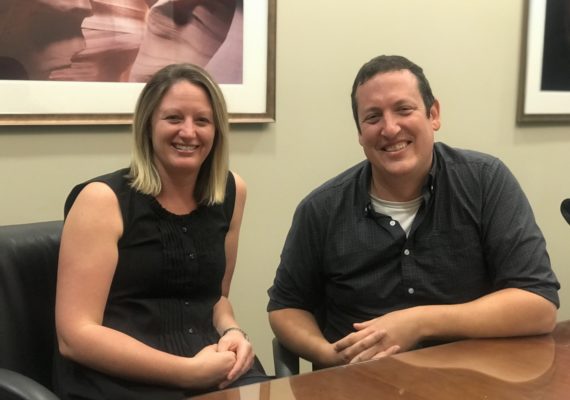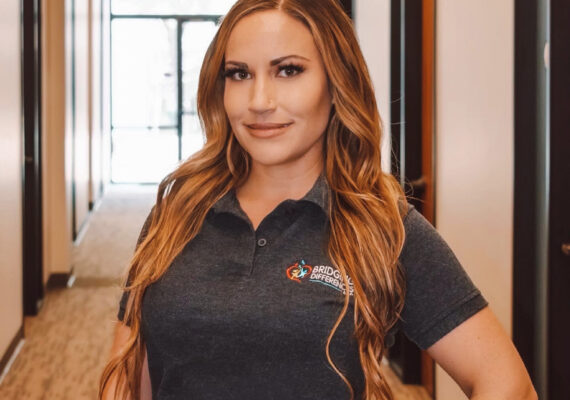This month, we met with Licensed Clinical Psychologist Dr. Lisa B. Harris, Psy.D. Dr. Lisa recently opened her own psychotherapy practice at Business Workspaces in El Dorado Hills, where she works with patients with a variety of problems (from mental health issues like depression and anxiety to all sorts of life challenges and transitions) and helps them to feel better, improve their ability to function, and develop healthier relationships. As she says on her website, “Each person is unique, and there cannot be a ‘one size fits all’ approach to treatment.” Her dedication is to help her patients in the ways that work best for them.
Tell us about your company and what you do?
I am a Licensed Clinical Psychologist in private practice, serving the Sierra foothills and greater Sacramento region. Currently, I provide individual psychotherapy to a variety of clients for an array of reasons. I use different interventions, incorporating evidence-based cognitive behavioral therapy into my practice. When it comes to helping people, I take a person-centered approach. Treatment is specifically tailored to that person’s needs. Sometimes early experiences affect current issues, and I try to incorporate that into my practice when it’s appropriate. There isn’t a single type of therapy that works for everyone, so it’s important to take a broad approach initially as I am getting to know a patient, and then adjust as needed. I’ve worked with a lot of different people and I know that not everything works for everyone.
How did you become interested in the field of psychology?
This is what I am best at. I’m a therapist, I was born to be a therapist. I’m very observant, I love helping people, and the field of psychology is so interesting. We still don’t know everything about the human mind, we are always learning new things. I love connecting with people and supporting them through difficult times. I enjoy helping people to access their inner resources to feel better and prosper in their lives.
What is something about your business that most people do not know?
A lot of people are uncomfortable with the thought of therapy and they think that there’s a stigma around it that means you’re “crazy.” But psychotherapy can be useful for many common human conditions. For example, we all deal with stress, but there are ways to handle it better with the help of the techniques we use.
As a whole, Psychologists also have a lot of different functions—they don’t just do therapy. We can do assessments and testing, we can diagnose. We can work within businesses and hospitals—prisons—wherever there is a need.
Another misconception about therapy is that it is supposed to work overnight. Depending on the patient, and the problem and the severity, it can be a process. Most people can benefit from trying therapy at least once in their life. The relationship between the patient and the therapist is the most important factor in patient success.
What advice do you have for others interested in becoming a clinical psychologist?
Figure out what area you would like to specialize in and go from there. Find a good, accredited program. Be open to understanding who you are and what you can offer, both your strengths and your weaknesses and use them to your advantage. It has been a great experience- starting my own business, and if I had known earlier how empowering it would be, I would have done it much sooner. That’s where Business Workspaces came in, to help me with my baby steps in getting set up!
Where do you see your business in 5 years?
Continuing to adapt to new regulations and roles. With the possibility of Medicare for all and the shifting landscape of healthcare, there are many changes on the horizon. I also look forward to learning and exploring different ways to help people through education and training. The one constant in life changes, so I try to prepare as best I can and roll with the punches.
Tell me about yourself.
You probably can’t tell by looking at me, but I worked in a men’s prison for five years (prior to my current business). It taught me a lot of discipline and helped to motivate me to understand where my strengths are. I honestly believe it would have been much harder to start and maintain this practice if I had not worked at the prison first.
Other than work, what are you passionate about?
I know it sounds cliche, but I am passionate about helping people. I also love my pets (dog and cat), my husband, I love to laugh, I create artwork. I do a lot of abstract painting. I like exercising. Oh, and I’m now planning to start a real estate business on the side.
What makes you feel energized about your business?
I love that I now have control over my business and my functions (versus having an employer), and I feel rewarded on a daily basis by helping others. When I hear that someone is doing better (and especially if I’ve had a part in it), it warms my heart. It’s the best feeling.
Do you have a daily habit that helps you be more successful?
I try to stay organized as much as I can and also maintain flexibility- I try to remind myself, ‘you don’t have control over everything.’ Being flexible is definitely important in small business when you’re starting out. I also look for the humor in things—I like to laugh. It’s the best medicine, along with working out.
Do you have a book that you often recommend or gift to people? Why?
Man’s Search for Meaning by Viktor Frankl. It’s a book that teaches us that no matter what situation we are put in, we can access the inner resources to get through and even in suffering, the worst situations, you can always find meaning in life. I’d definitely recommend it.









